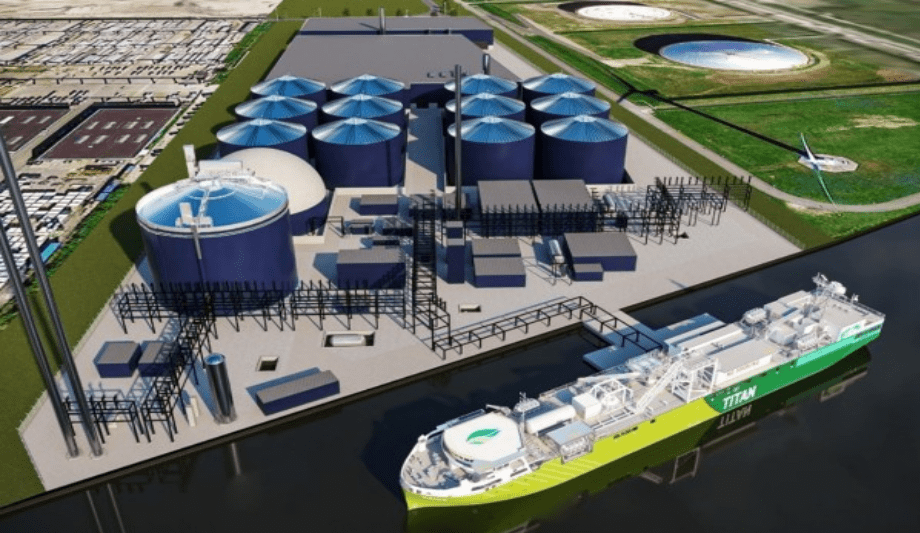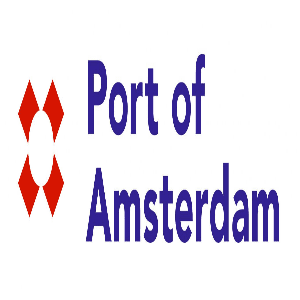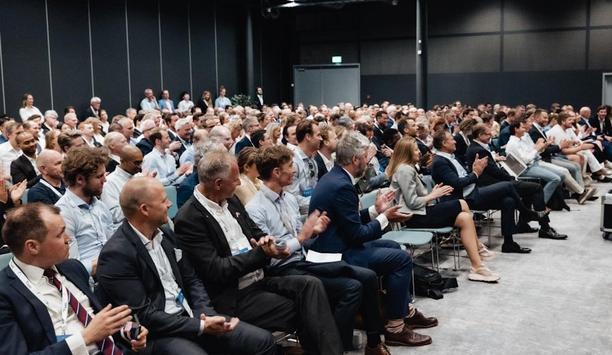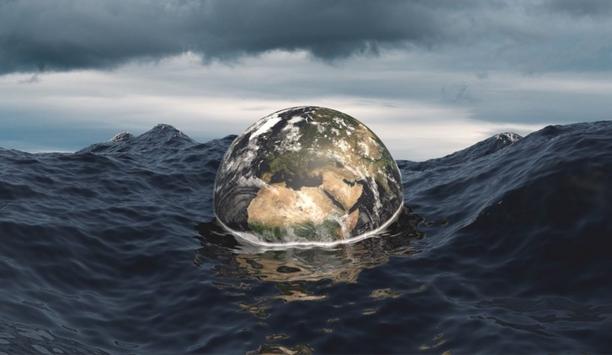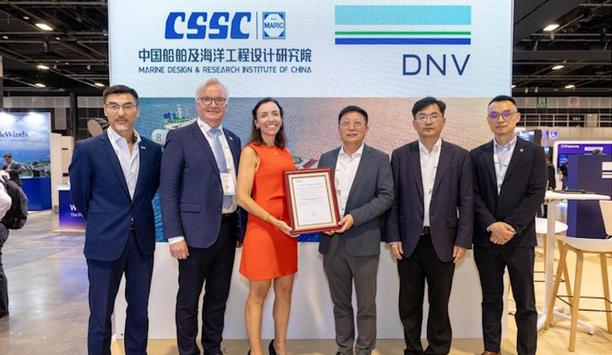Titan's Liquified Biomethane plant (LBM, also known as bio-LNG) plant will soon make it possible to produce liquid biomethane from organic waste and residual streams.
The waste will be converted by biogas supplier BioValue after which Titan will turn it into liquid biomethane with its new plant. Linde Egineering is making the basic engineering for the plant that should provide 200,000 tons of LBM per year. First production is expected in 2025.
Fuels for shipping
The alternative fuel made at the LBM plant is largely intended for shipping. Instead of fossil fuels, Titan offers with the liquid biomethane a sustainable alternative for ships to sail on. With this, the consortium aims to contribute to the European Commission's 55% CO2 reduction target.
Generating biogas on site
The LBM plant will be built next to the Titan bunker pontoon in the Amerikahaven. Most of the LBM production will be produced from biogas generated on site by BioValue.
The remainder will come from other European biogas production facilities connected to the existing gas grid.
Sustainable ambitions
Roon van Maanen, Director Energy & Circular Industry at Port of Amsterdam: “Having the energy transition, circular economy and clean shipping at the core of our sustainability strategy, Port of Amsterdam welcomes the novel renewable fuel plant with full support. We want to reduce emissions in our port area and lead the way in the transition to a sustainable society.”
“This plant, with its hydrogen-ready design, is a perfect example that fits seamlessly with our long-term strategy for the port.’’
